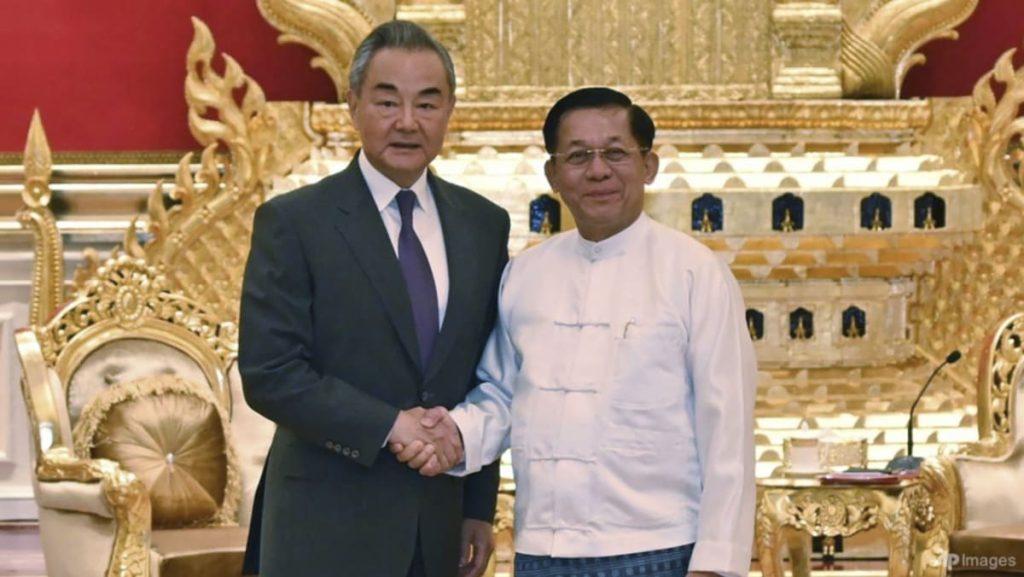The escalating involvement of Chinese private security contractors (PSCs) in Myanmar presents a multifaceted and potentially destabilizing situation with far-reaching implications for Myanmar, its neighbors, and the broader geopolitical landscape. While ostensibly independent, these PSCs remain susceptible to infiltration and influence by the People’s Liberation Army (PLA), blurring the lines between private security operations and state-sponsored military action. This raises significant concerns about the potential for unintended escalation, the blurring of responsibilities, and the exacerbation of existing tensions within Myanmar and the region.
The presence of Chinese PSCs in Myanmar significantly increases the risk of Chinese nationals becoming entangled in the ongoing conflict, potentially leading to casualties. This risk echoes the experiences of other nations that have supported authoritarian regimes facing popular uprisings, such as Russia and Iran in Syria. The rapid collapse of the Assad regime left these nations with stranded assets and diminished influence. China’s increasing involvement in Myanmar carries a similar risk, potentially jeopardizing its economic and strategic interests should the junta’s grip on power falter. The precarious nature of the junta’s rule necessitates a cautious approach from China, as its current strategy of bolstering the regime could backfire if the political landscape shifts dramatically.
For the Myanmar junta, reliance on Chinese security forces is a double-edged sword. While it provides a much-needed boost to their security capabilities, it simultaneously underscores the junta’s inability to protect even the interests of its most crucial ally. This dependence further cements the junta’s subservience to China, potentially at the cost of its own sovereignty and legitimacy. While Russia has been the junta’s primary arms supplier, China remains a pivotal partner in both military and economic spheres. This dependence on foreign support highlights the junta’s precarious position and its vulnerability to external pressures.
The opposition forces in Myanmar face increased challenges due to the amplified Chinese security presence. Their efforts to gain control over crucial economic and population centers are further complicated by the involvement of these foreign actors. Furthermore, the potential for China to curtail its support for certain ethnic armed groups, particularly those with historical ties to China, could significantly alter the balance of power. This shift may compel the opposition to focus on domestic arms production and diversify its economic activities, potentially reducing China’s long-term influence over these groups. The changing dynamics necessitate strategic adaptations from the opposition to navigate the increasingly complex landscape.
The broader implications of increased Chinese security involvement extend beyond Myanmar’s internal dynamics. Neighboring countries, particularly India, Bangladesh, and Thailand, are likely to view the expanding Chinese presence with apprehension. India’s substantial investments in Myanmar, situated in close proximity to the planned Chinese security operations in Rakhine State, create a potential flashpoint for regional tensions. Similarly, Bangladesh and Thailand will be wary of Chinese forces operating on their borders and potentially influencing Myanmar’s internal affairs. The ripple effects of this increased Chinese presence could destabilize regional relations and exacerbate existing geopolitical anxieties.
The influx of Chinese security forces also complicates the ongoing efforts by the Association of Southeast Asian Nations (ASEAN) to mediate a peaceful resolution to the Myanmar crisis. While China’s support has been a lifeline for the junta, ASEAN continues to advocate for a more inclusive political process. The increased Chinese security presence is unlikely to be viewed favorably by ASEAN and may further hinder their mediation efforts. The conflicting approaches of China and ASEAN underscore the challenges in finding a sustainable solution to the Myanmar crisis. The interplay of these various actors and interests creates a complex and volatile situation with potentially long-lasting consequences for regional stability and international relations.

